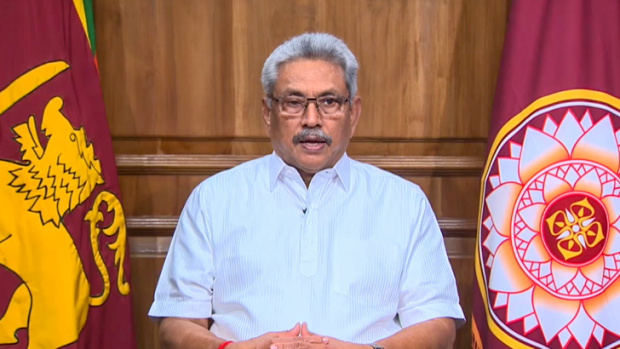COLOMBO – President Gotabaya Rajapaksa on Wednesday (25) appointed a panel comprising three top retired legal experts to make recommendations and advise him on the Prevention of Terrorism Act (PTA), a law which many Western nations and international rights groups have asked successive governments to abolish claiming it has been used to suppress minorities and silence dissent.
The move also comes ahead of next month’s (September) United Nations Human Rights Council (UNHRC) meeting where the Rajapaksa administration will have to explain some steps it has taken to address past human rights violations.
Director-General of Legal Affairs, Presidential Secretariat, Attorney-at-Law Harigupta Rohanadeera, in a statement issued by the President’s Media Division (PMD), said the appointments had been made in accordance with Section 13 of the Prevention of Terrorism Act (PTA) No. 48 of 1979. He also said the panel, chaired by former Chief Justice Asoka de Silva, includes retired High Court Judge A.A.R. Heiyanthuduwa and former Solicitor General Suhada Gamlath.
The PMD said the advisory panel has been tasked with making recommendations and advising the president on investigation, release, granting of bail and future action related to persons imprisoned on charges of terrorist activity and detained under detention orders.
“Hitherto, the persons who have been imprisoned had no opportunity to make representations about their rights as there was advisory board,” the statement said, adding, with the appointment of the advisory panel, prisoners will now have an opportunity to air their grievances to the panel.
Facing threats of losing the European Union trade concession that has kept Sri Lanka’s key export sectors alive, and possible targeted sanctions, the country has been moving forward with some snail-paced steps to address concerns over rights abuses and undermining of the rule of law.
Since the European Parliament adopted a resolution in June to consider withdrawing the more than US$ 500 million worth of trade concession, President Rajapaksa’s administration has taken a step back on its stance of engaging the international community, which had pushed Sri Lanka to address some key human rights concerns.
The European Parliament’s key demand was to repeal the PTA, claiming the legislation has been systematically used for arbitrary arrests and the detention of minority groups in Sri Lanka.
A Geneva resolution in March allowed the United Nations “to collect, consolidate, analyze and preserve information and evidence, and to develop possible strategies for future accountability processes for gross violations of human rights or serious violations of international humanitarian law in Sri Lanka, to advocate for victims and survivors, and to support relevant judicial and other proceedings.”
Some individual countries have already imposed targeted sanctions on some former military officials who have been accused of human rights violations said to have been committed in the final weeks of Sri Lanka’s 26-year war,
-economynext.com/ENCL


